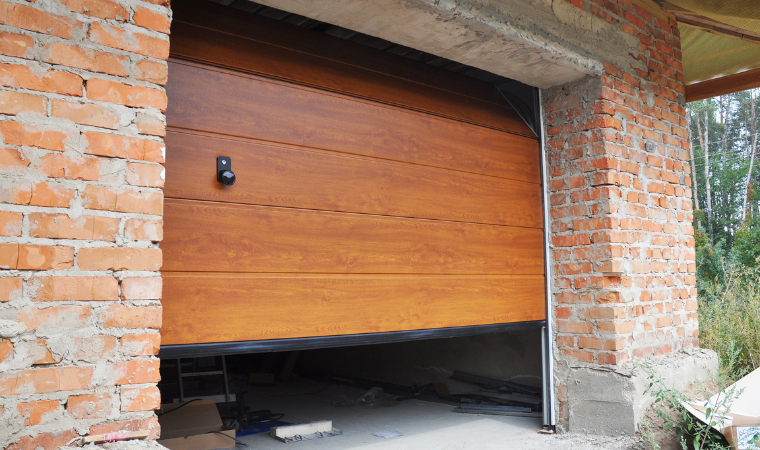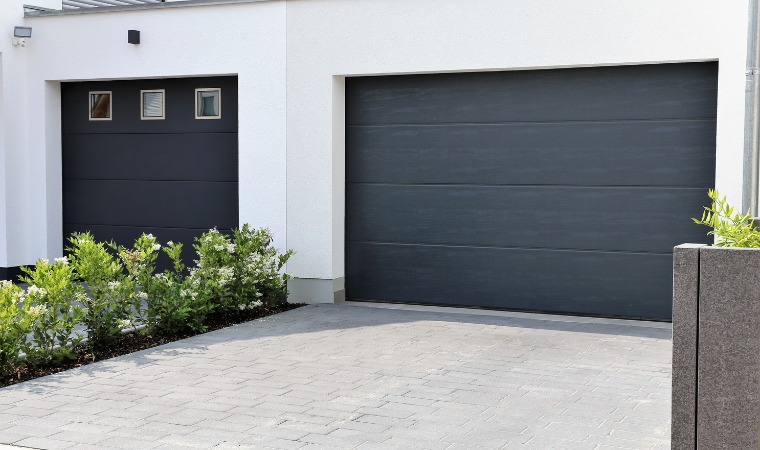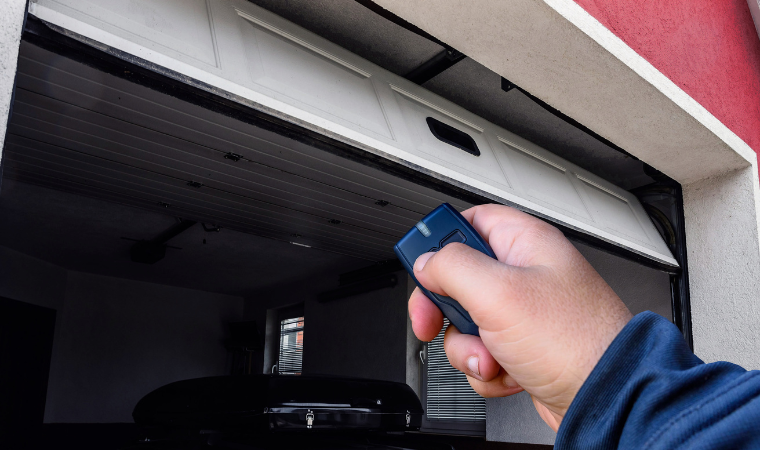Your garage door is more than just an entry point—it’s a key part of your home’s exterior, security, and energy efficiency. Whether you’re replacing an aging door or selecting one for a new construction, the choice you make will impact curb appeal, performance, and comfort for years to come.
With so many options available, understanding the differences in materials, styles, and insulation can help you make a smart investment. This guide breaks down everything you need to know when choosing the perfect garage door.
1. Garage Door Materials: Pros and Cons
Steel
Steel is a popular choice for its durability, affordability, and low maintenance, making it suitable for most homes. It comes in various styles, can be insulated for energy efficiency, and resists warping. However, it’s prone to denting and may rust over time if not properly finished or maintained.
Wood
Wood garage doors offer natural beauty, customization options, and timeless charm, particularly for traditional or craftsman-style homes. On the downside, they require frequent maintenance to protect against rot, moisture, and warping, and they tend to be more expensive than other materials.

Aluminum
Aluminum doors are lightweight, rust-resistant, and ideal for modern home designs, especially when paired with glass panels. While they perform well in humid climates, they’re more susceptible to dents and don’t offer the same insulation or strength as steel.
Vinyl
Vinyl doors are dent-resistant, durable, and nearly maintenance-free, making them a practical option for busy households or coastal environments. Their drawbacks include limited color and style options, and in very cold climates, the material can become brittle over time.
Fiberglass
Fiberglass mimics the look of wood and is resistant to moisture and insects, offering a lightweight and low-maintenance alternative. However, it may fade with prolonged sun exposure and can crack in extremely cold weather, making it less suitable for all climates.
2. Garage Door Styles
Your garage door should complement your home’s architectural style while fitting your personal taste. Common styles include:
Traditional Raised Panel
Classic, rectangular panels fit a variety of homes from suburban to colonial designs.
Carriage House
With a barn-style appearance and often featuring decorative hardware, these doors suit rustic or country homes. Though they appear to swing out, they function like overhead doors.
Modern/Contemporary
Characterized by clean lines, large glass inserts, and minimalist finishes. Ideal for mid-century or modern homes.
Custom Designs
Some homeowners opt for fully custom garage doors using mixed materials and personalized features for a unique look. Local experts, like Fairway Garage Door Chicago, can help homeowners design custom doors that balance beauty with function.

3. Understanding Insulation
Insulated garage doors are essential for temperature control and energy efficiency—especially if your garage is attached to your home.
Types of Insulation
- Polystyrene: Rigid panels placed inside the door, offering basic thermal resistance.
- Polyurethane: Denser foam is injected between the door layers. Offers superior insulation and increases door strength.
What is R-Value?
The R-value measures thermal resistance. A higher R-value means better insulation. If your garage is climate-sensitive or used as a workspace, look for doors with R-values of R-10 or higher.
Benefits of Insulated Doors
- Improved temperature regulation
- Reduced energy bills
- Less outside noise
- Enhanced door strength
- Longer lifespan for garage contents and vehicles
4. Extra Features to Consider
Windows
Windows improve aesthetics and bring in natural light. Choose insulated or frosted glass for privacy and thermal performance.
Smart Technology
Modern garage door openers offer smartphone control, real-time alerts, and integration with home automation systems.

Security
Look for doors with reinforced locking mechanisms, tamper-resistant brackets, and openers with rolling code technology for better protection.
Color and Finish Options
From bold blacks and wood-tone finishes to neutral whites and grays, garage doors come in a wide array of colors. Many materials also offer texture options, like faux wood grain on steel or vinyl.
Making the Right Decision
Before purchasing a garage door, consider:
- Your climate: Insulation and moisture resistance are critical in extreme weather zones.
- Your budget: Steel and vinyl offer the best value, while custom wood designs cost more.
- Home aesthetics: Match or complement your home’s exterior color, texture, and style.
If you’re unsure, consult a garage door professional to guide you through the process. A well-chosen door not only functions better but also significantly boosts curb appeal.
Conclusion
Choosing the right garage door involves balancing aesthetics, durability, energy efficiency, and cost. By understanding the different materials, styles, and insulation types, you can select a door that enhances both the look and performance of your home.
Investing in a quality garage door improves comfort, lowers energy costs, and adds value to your property. And if you’re in need of expert guidance, reliable installation, or custom options, Fairway Garage Door is a trusted resource ready to help bring your vision to life.
